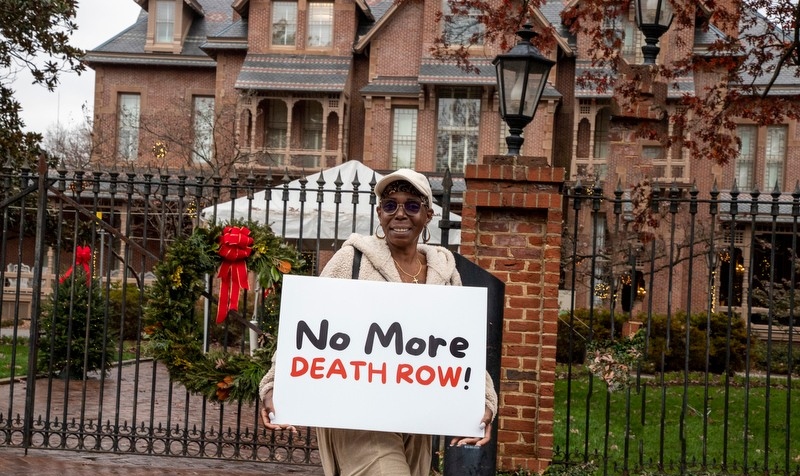For more information contact: Gretchen M. Engel, gretchen@cdpl.org, (919) 682-3983
Raleigh, NC — Gov. Roy Cooper today joined a growing list of governors who have taken action to limit the use of the death penalty with an announcement of 15 grants of clemency for people on North Carolina’s death row. It is the largest grant of death row clemency in North Carolina’s history.
Those who will now serve life without parole sentences include 11 clients of the Center for Death Penalty Litigation. Their cases involve evidence of serious flaws including racial bias, questions of innocence, and the use of the death penalty in cases of severe mental illness, intellectual disability, or young people whose brains have not fully developed. Among them is Hasson Bacote, who earlier this year brought forward groundbreaking evidence of the link between North Carolina’s death penalty and its history of racial terror in a hearing under the North Carolina Racial Justice Act.
CDPL is a member of the Racial Justice Act litigation team and has been part of a two-year campaign calling on the governor for death row commutations.
“We are deeply gratified that Gov. Cooper took our request for capital commutations seriously,” said Gretchen Engel, executive director of the Center for Death Penalty Litigation. “It makes sense that governors are taking steps to prevent executions, given the hundreds of death row exonerations we’ve seen across the country and the overwhelming evidence of racism in capital trials.”

Every Democratic governor in a state with the death penalty has now taken at least some executive action to prevent executions, whether by imposing a moratorium, granting commutations, or supporting legislation. Republican governors in Tennessee and Ohio have also halted executions. (See a state-by-state overview of the death penalty here.)
“I’m deeply grateful that North Carolina has now been added to the list, given that we have one of the largest death rows in the nation and some of the most glaring evidence of racism in capital sentencing that’s ever been presented in a courtroom,” said Jay Ferguson, a lead attorney on Mr. Bacote’s case and a member of CDPL’s board of directors. “In light of the sweeping evidence of race discrimination that we brought forward under the Racial Justice Act, North Carolina must never allow another execution.”
A Gallup poll released in November found U.S. death penalty support at a 40-year low, with a majority of Millenials and Gen Z now opposing it. In North Carolina this year, there were three capital trials but no new death sentences because prosecutors seek the death penalty much less frequently and most juries vote for life even in the most severe cases.
“People are realizing what those of us who work in this system have known for decades,” Engel said. “The death penalty is a deeply unjust and ineffective system that plays no role in keeping communities safe. I hope our elected officials will follow Gov. Cooper’s lead and continue to move North Carolina toward more effective and humane responses to crime.”
North Carolina’s death row remains the fifth largest nation with 121 people awaiting execution. Attorneys at CDPL represent about half of them.

